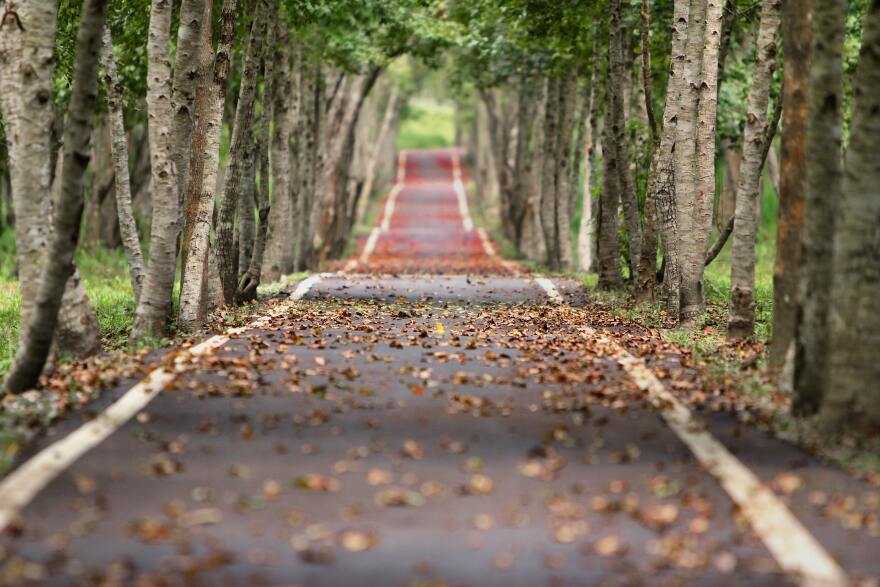Asthe Omicron variant devastated New Mexico in January of 2022, teachers faced classrooms with poor ventilation and little compliance with masking guidelines. One teacher, a 40-year veteran of the profession, spoke with KUNM’s Jered Ebenreck about her struggle with long COVID after contracting it in a poorly ventilated classroom. She asked that her name and voice be concealed to prevent professional retaliation.
TEACHER: I started requesting HEPA filters in the fall when the students returned and many of them, just like the rest of society, have different feelings about mask wearing. This became a major classroom problem and there weren't many ways to resolve it. Not receiving the HEPA filter in the fall was problematic. When I returned after having COVID, I received a HEPA filter. Unfortunately, it was too late for many of the students when Omicron was running rampant and for myself.
KUNM: When does it become apparent something's lingering on?
TEACHER: Some of the side effects were what I would call the “brain fog.” As a teacher, you're constantly monitoring, making decisions, teaching, moving, doing. And I found that there were times when I didn't feel up to speed. I started with insomnia, not being able to get started for the day. The diminished energy for daily tasks, constricted and heavy breathing, lung capacity is diminished, my heart pain at times. That leads to the anxiety of, “Am I going to be able to show up?” So then that definitely goes into the mental health of depression and anxiety. “Uh oh, should I go out? If someone has COVID there, will I get COVID again? Will it bring all these symptoms back?” There are times when there are what I call, “mystery aches,” in my legs; when my hands just gripped up, took months for me to be able to open a jar again. Neuropathy, the tingling at the edges of the fingers, and especially at night. And sometimes the pins and needles in my toes. So these are all strange symptoms that come and go.
KUNM: What are you doing to care for yourself, to seek treatment?
TEACHER: If I have difficulty with body aches, or I may have lymphedema, I have to go to PT for that. Or if I'm overly tired, I'll have to do bloodwork. There's neuropathy that happens–the tingling, the burning of my fingers. I've had to get injections and have cortisone in my fingers. I've self-treated through wellness, through trying to go just a little bit more each day. I have doctors that respond to the symptoms, but not the whole picture. And I think that's probably going to change as people begin to specialize in long haul COVID.
The other part is what I call the “regaining the sense of self.” Everyone's changed, I believe, through COVID. I know I've changed but regaining a sense of self and safety in going into public spaces–and I work on that also daily. So it's twofold: physical and mental/emotional. I'm always a proponent of healing in-community. I would say getting in touch with others who have the same experience or had the same experience, not just for the physical symptoms, but also to validate the social emotional component. The doctors can help by looking at the holistic picture rather than each symptom in isolation. Rest when you need to rest.
KUNM: How are your plans impacted ?
TEACHER: One of the things about long COVID, you know, that I like for people to know, is it's very real. It's like spinning the wheel, like who gets it and who doesn't. I'm usually a summer traveler, and this will be one of the first years I won't travel to see my family. I will use this time to focus on wellness. Going forward, I'm planning on returning to the classroom. I see myself continued masking, just for my own safety. And hopefully I can take part in a number of activities that include outdoor gatherings, which is a lot more comfortable for me at this time. I'm hopeful that by the end of this summer, I will have my strength back.









